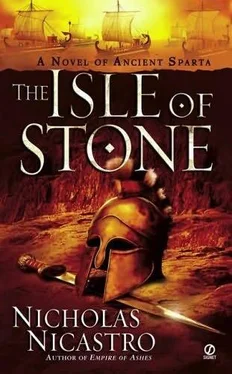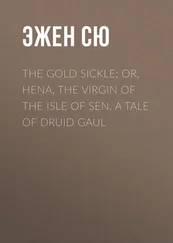Nicholas Nicastro - The Isle of Stone
Здесь есть возможность читать онлайн «Nicholas Nicastro - The Isle of Stone» весь текст электронной книги совершенно бесплатно (целиком полную версию без сокращений). В некоторых случаях можно слушать аудио, скачать через торрент в формате fb2 и присутствует краткое содержание. Жанр: Исторические приключения, на английском языке. Описание произведения, (предисловие) а так же отзывы посетителей доступны на портале библиотеки ЛибКат.
- Название:The Isle of Stone
- Автор:
- Жанр:
- Год:неизвестен
- ISBN:нет данных
- Рейтинг книги:4 / 5. Голосов: 1
-
Избранное:Добавить в избранное
- Отзывы:
-
Ваша оценка:
- 80
- 1
- 2
- 3
- 4
- 5
The Isle of Stone: краткое содержание, описание и аннотация
Предлагаем к чтению аннотацию, описание, краткое содержание или предисловие (зависит от того, что написал сам автор книги «The Isle of Stone»). Если вы не нашли необходимую информацию о книге — напишите в комментариях, мы постараемся отыскать её.
The Isle of Stone — читать онлайн бесплатно полную книгу (весь текст) целиком
Ниже представлен текст книги, разбитый по страницам. Система сохранения места последней прочитанной страницы, позволяет с удобством читать онлайн бесплатно книгу «The Isle of Stone», без необходимости каждый раз заново искать на чём Вы остановились. Поставьте закладку, и сможете в любой момент перейти на страницу, на которой закончили чтение.
Интервал:
Закладка:
Endius kept looking, as if this answer wasn’t worth a reply.
“Virtue?”
“Who said that?” asked Endius.
Stone raised his hand.
“I ask again, who said that?”
Antalcidas stood up. “I said it.”
“That’s better-never hide in the crowd, boy! If something’s worth saying, it’s worth standing on your feet and taking credit for it. Understand?”
“Yes!”
“You said virtue. That’s closer to the truth, but still not right-virtue comes as naturally to the well-reared Spartan as fruit to the trees, but it is not itself the goal. Anyone else?”
No one spoke.
“There are two right answers. I’ll tell you one of them: freedom. The Spartan citizen is as free as any mortal can be of enslaving passions. Most binding of all are the pleasures that men pursue. To teach you these truths, all children of citizens must suffer the Rearing, without regard to their families’ honor or wealth. Remember this when you are hungry, or cold, or if you are lucky, facedown on the field of battle: you suffer because it makes you free.
“As for the other right answer-that is one you will have to learn on your own. It will not be told.”
With that, Endius announced that he would answer precisely two questions. The youths looked at each other, as if unsure of what to ask or how to ask it. Beast shoved the nearest boy to him and snarled, “Come on now-any grub questions?”
Cheese straightened up and spoke, measuring out his words sparingly. “It is said that other Greeks live in proper cities. Why do our people still live in villages?”
“What you call ‘proper cities’ are the conceits of mortals,” replied Endius. “The Lacedaemonians live in their five villages, and other Greeks in their cities. The Persians have the biggest settlements of all. Yet where do finer men dwell than here? Thebans and Corinthians assemble in vast meeting halls. Yet are the decisions of our elders any less wise for their meeting in the forest, where they are undistracted by roofs and statues and other vanities? The Babylonians have a city wall half a stade tall, and they have been conquered many times. We have no wall, yet we have never known an enemy soldier to plant his foot in our soil. Sparta’s walls are the bodies of the men who defend her.”
“How large is our territory?” asked Frog.
“You have seen the boundary yourself. It lies at the tip of Aeimnestus’s spear. Wherever he carries it, that is the territory of Sparta.”
The pack was dismissed. Their suffering, and therefore their freedom, was enhanced by a spell of cold weather that shrouded Taygetus and the folds of their tunics with frost. They forgot their discomfort by running through the woods, flying under the opposing limbs of the trees, lashing the trunks with fennel stalks. As Stone charged, he struck a young laurel, scattering the leaves behind him as he sang the words Beast had taught him: I would not say anything for a man nor take account of him For any speed of his feet or wrestling skill he might have not if he had the size of a Cyclops and strength to go with it…
8
The raising of Epitadas consumed almost all Damatria’s attention until it was time to let him go. In those years she fed him, bathed him, swaddled him, and taught him with the fierce possessiveness of a lover. She rarely let Lampito hold the child; Damatria had no patience at all with Molobrus’ paternal fumbling. Of his other kind of clumsiness, the one that afflicted him in the bedroom, she no longer took notice. The act interested her only insofar as it resulted in the salvation that was Epitadas.
In a most un-Spartan manner, she took pleasure in her son’s cooing helplessness. The freshness of his smell possessed her, as in the night she tended to his little cries, his spit-ups, his chubby arms held out to her. Upon the spectacle of his first steps, she wept. For four years she nursed him, seeking privacy so she could gaze into his eyes. The power of his suck kindled a sensual glow that Molobrus’ blunt pokings could never match.
When the day came for him to take the Rearing, she felt as if a piece of her heart was being cut out. She made Endius come three times, telling Epitadas to hide in the fields on the first two occasions. By the time his surrender could no longer be avoided, she left it for Molobrus to hand him over. Damatria watched him leave from a safe place, her hands grasping her milk-swollen breasts, too full of rage to let a sound escape the contorted mask of her grief.
She had to know where Endius took him. She followed them through the barley farms east of the villages, over the pelleted sheep tracks, to a hollow formed by two cypress-clad hills. An altar to mirthless Demeter lay in the center, its mass built up from centuries of solid ash tarred by dripping animal fat, scorched hair and bones and, on this occasion, the tears of a single Spartan mother as bereft as the goddess facing her daughter’s exile to the underworld. From there she watched the boy-herd take the boy into the field to meet his fellows.
After a few days tracking the pack, Damatria learned its movements and could predict with fair accuracy where her son would be at any moment of the day. The paradox of it, that the movements of a group meant to be in a perfect state of freedom could be so easily forecast, was not lost on her. It was of use, though, in her efforts to keep the boy fed. Heedless of the scandal it would cause, she supplemented Epitadas’ diet in secret, bringing him baskets of bread, apples, figs, almonds, olives, and cheese. The boy learned where to find his mother in the woods. They met without exchanging words-Damatria keeping watch for intruders, Epitadas stuffing the provisions into his mouth as fast as he could. On occasion, their eyes would meet. In her glance, there was the urgency of a need that transcended any prospect of shame; in his, Damatria saw neither thanks nor affection, but only the appetite of a starving animal.
From her vantage nearby, she could see the fruits of her crime. Where the other boys became undersized on their scanty diet, Epitadas came to tower over them all. In six months he outweighed boys three years his senior. With these advantages he dominated the competition, ruling his pack with intimidation backed by capricious outbursts of force. Damatria would watch him humiliate the other boys, strike them down, kick them, grind their faces into the dirt. She wished it didn’t need to be so, and hoped that one day he would not take such joy in it, but mostly she was thankful it was Epitadas who gave the beatings and not the other way around. Then she set her mind to the pleasurable task of thinking in what other ways she could enhance his supremacy.
II
1
Thirty years later, in the seventh year of the war between his city and Sparta, Demosthenes the Athenian invaded enemy territory with five ships and a thousand men. He did it midway through a trip around the Peloponnese, touching land in the extreme southwest of Sparta’s dominion under cover of a storm.
The Athenians beached their vessels in a vast bay in the old kingdom of Messenia, beneath the capital of Homeric Nestor, just down the coast from the horseshoe strand where Prince Telemachus once sought news of his father, Odysseus. Millennia later, near modern Pylos, a combined British, French, and Russian naval force would help assure Greek independence by annihilating a Turkish fleet there. Centuries after that, the oily waters were plied by tankers whose size and ugliness would exceed the ancient imagination, but inspire no poetry. These gave way in their time to German and American holidaymakers escorted around Navarino Bay in motorboats, seeking camera-ready pathos among the drowned sarcophagi of six thousand Turkish sailors.
Читать дальшеИнтервал:
Закладка:
Похожие книги на «The Isle of Stone»
Представляем Вашему вниманию похожие книги на «The Isle of Stone» списком для выбора. Мы отобрали схожую по названию и смыслу литературу в надежде предоставить читателям больше вариантов отыскать новые, интересные, ещё непрочитанные произведения.
Обсуждение, отзывы о книге «The Isle of Stone» и просто собственные мнения читателей. Оставьте ваши комментарии, напишите, что Вы думаете о произведении, его смысле или главных героях. Укажите что конкретно понравилось, а что нет, и почему Вы так считаете.










![Nicholas Timmins - The Five Giants [New Edition] - A Biography of the Welfare State](/books/701739/nicholas-timmins-the-five-giants-new-edition-a-thumb.webp)

